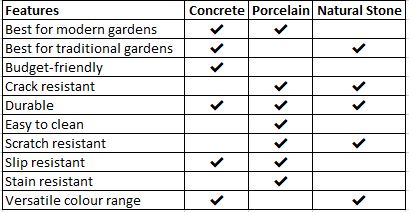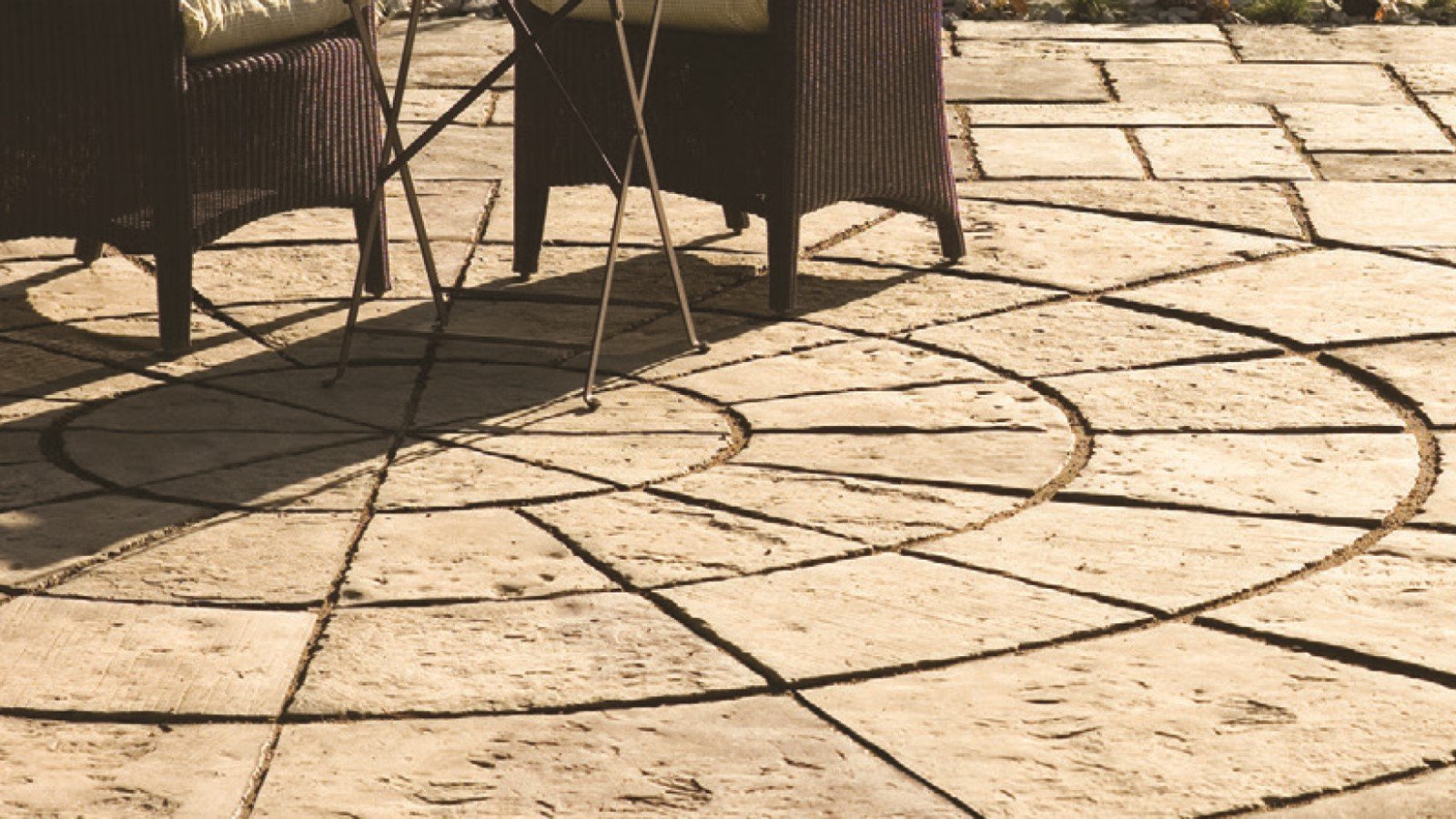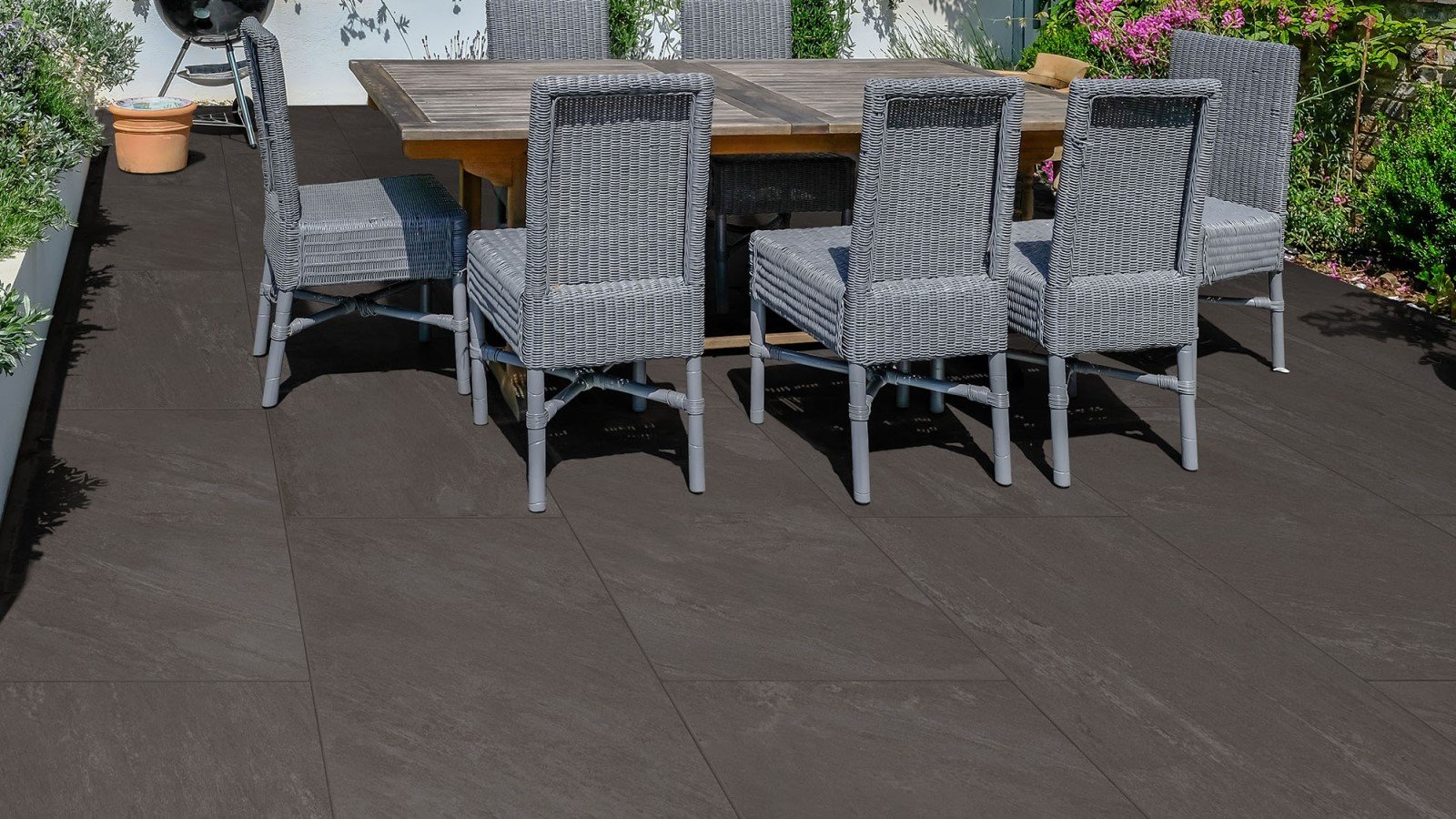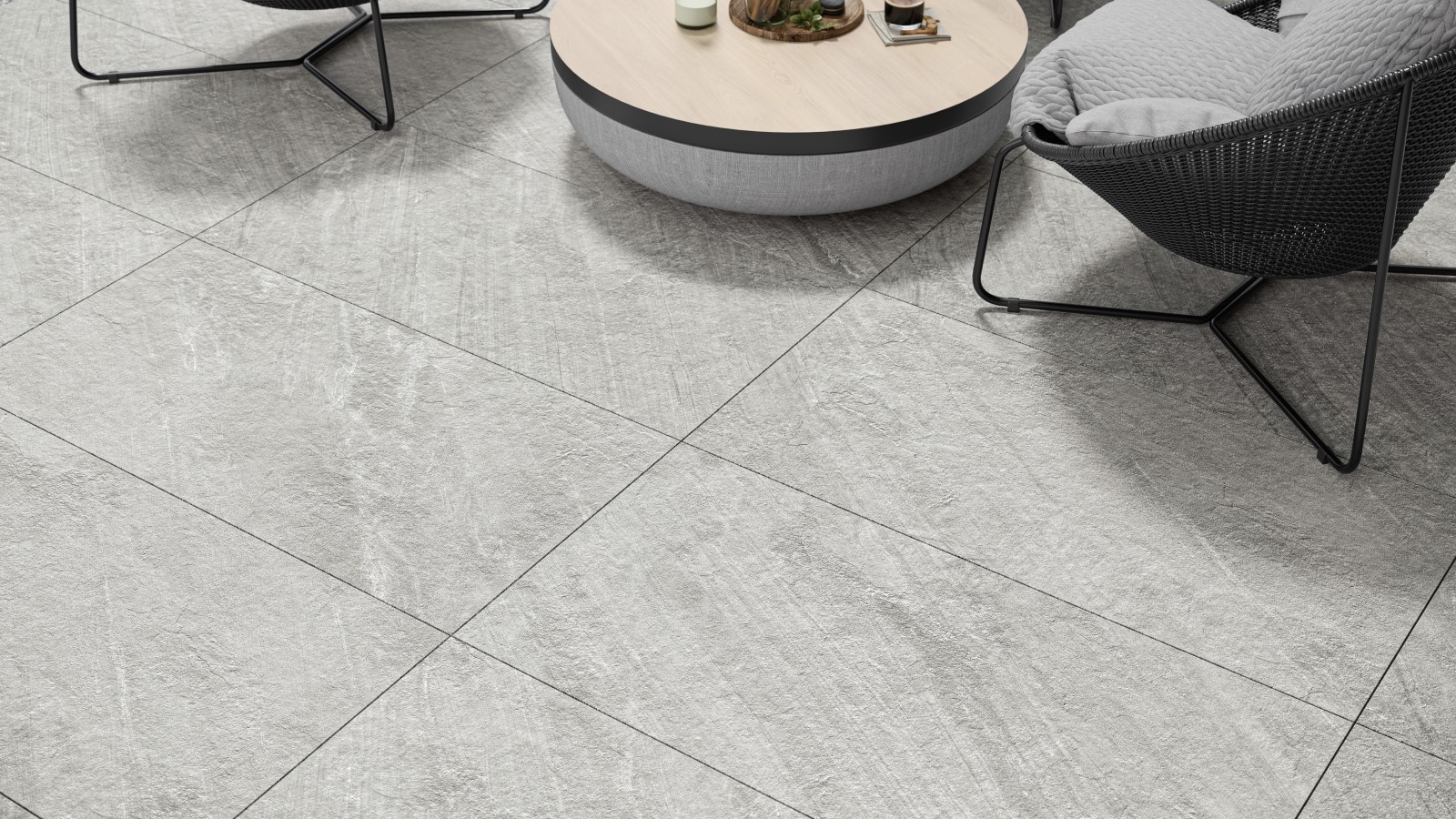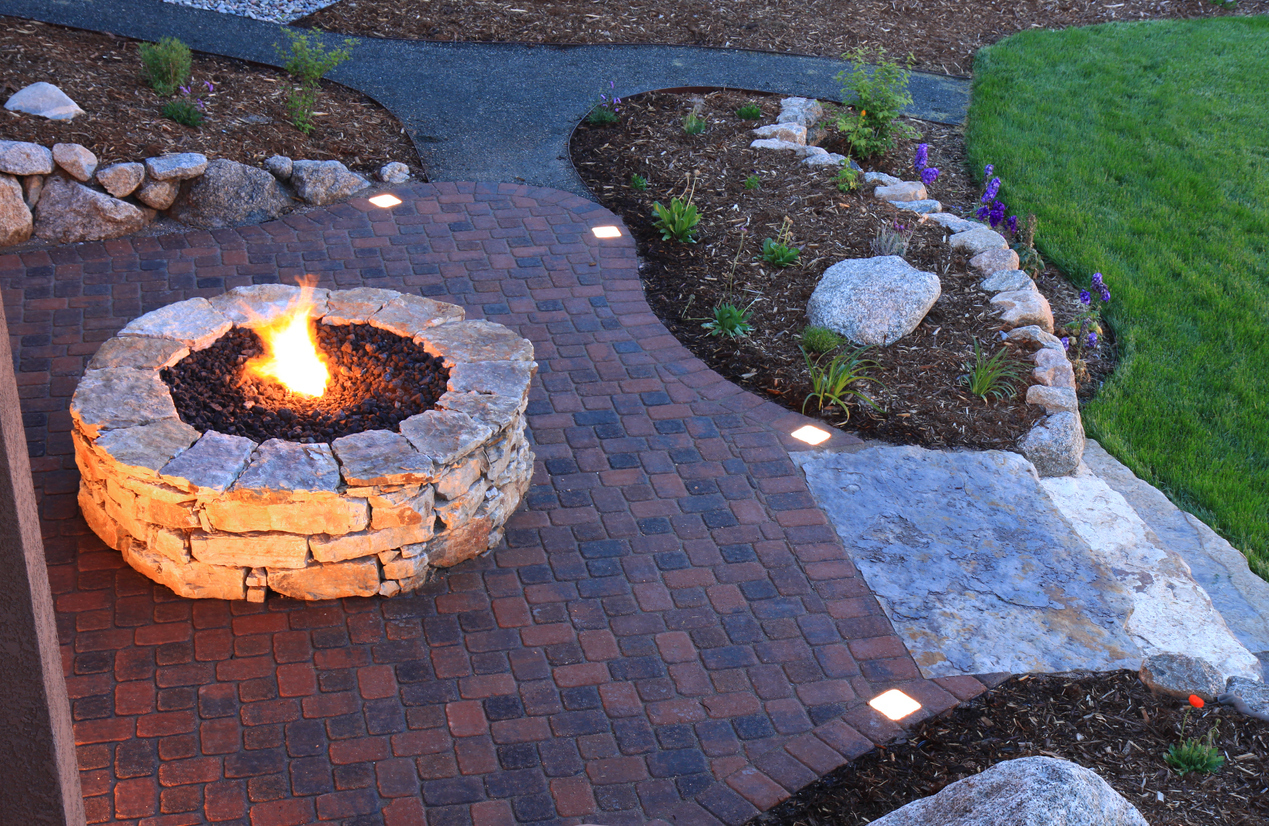With the weather getting warmer and the days getting longer, spring and summer offer the perfect opportunity to finally install that new patio you’ve been daydreaming about all winter.
However, choosing the right paving slabs for your landscaping project is much easier said than done. Between concrete, porcelain, and natural stone, there are just so many options to compare and contrast.
So, to help you find the perfect pavers for your patio we’ve broken down the differences and benefits of each type of paving.
Continue reading, below, to compare concrete, porcelain, and natural stone paving.
Which paving material is right for you?
Concrete paving
Suitable for both patios concrete paving is an always reliable choice for your landscaping project.
Not only is this paving material extremely durable, able to pass the test of time with flying colours, but it can also fit into both modern and traditional designs. Concrete paving is also one of the most affordable types of paving on the market, with budget-friendly options available to make your money go further.
Porcelain paving
Porcelain paving is perhaps our most popular type of paving – and for good reason too!
Professional landscapers and DIY enthusiasts alike just can’t get enough of porcelain’s sleek and sophisticated style, adding a touch of elegance to any patio. What’s more, this pristine look is easy to maintain as well, with spills and stains coming off with a wipe of a sponge.
So, if you can afford the higher price point, you can’t go wrong with porcelain paving.
Natural stone paving
Whether you’re eyeing up sandstone slabs or limestone pavers, natural stone patio slabs always impress with their natural veining and charming tonal variations.
And thanks to the inherent durability of natural stone, this coveted beauty can stand up to weathering and the everyday wear and tear of patio use. All you need to do is find the Indian stone colour that best suits your garden, and then you can admire that style for years and years to come!
Durability
When it comes to installing a patio you aren’t choosing paving products that just last a couple of years – you want pavers that will look just as good in 10, 15, or 20 years’ time.
Well, the good news is that concrete, porcelain, and natural stone pavers all count durability amongst their chief attributes. That means you can choose any of these paving options and still enjoy your patio after decades of use – as long as they are properly maintained.
However, the durability of porcelain paving is a cut above the other ranges. Not only are porcelain pavers inherently durable, but they are also naturally scratch and stain resistant, making it much easier to keep your patio in tip-top condition.
Maintenance
There’s only one winner here: porcelain paving.
Of the three, it is the only type of paving that does not need sealant to make it more stain resistant. That’s because porcelain paving is naturally non-porous – which means that stain and spills do not soak into the material, they can simply be lifted off with soapy water and a sponge.
Of course, if you add sealant to concrete or natural stone pavers, then you can also enjoy this type of minimal maintenance with your patio!
Aesthetics
While considerations around durability and maintenance are important, you also need to think about how your new pavers will look on your patio.
Don’t worry, there’s no right or wrong answer here, it’s just about choosing the paving material that you think will look best in your outdoor space.
For general guidance, natural stone looks right at home in a traditional set-up, such as a country cottage garden, whereas porcelain paving is popular in a more modern motif. Concrete paving can also easily cater to both aesthetics, such is the wealth of styles available.
Cost
Of course, we can’t compare paving materials without talking about price. After all, you need to know whether your pavers of choice will fit into your landscaping budget!
In terms of pure costs, concrete paving features the most affordable products, with cheaper ranges on offer than those available with porcelain or natural stone. For example, Bradstone Peak Riven Paving is a part of our value paving range, which lets you pave over the seldom seen areas of your garden, such as bin or utility areas, on the cheap.
If you want to find out more about how each paving material compares, read our natural stone vs concrete or porcelain vs natural stone articles. You can also reach out to our team of friendly experts, either call via 0800 032 6306 or start a live chat with us online today.
Or, if you’re ready to start shopping for your new pavers, check out our paving slabs collection.
Comparison between concrete, porcelain, and natural stone paving
